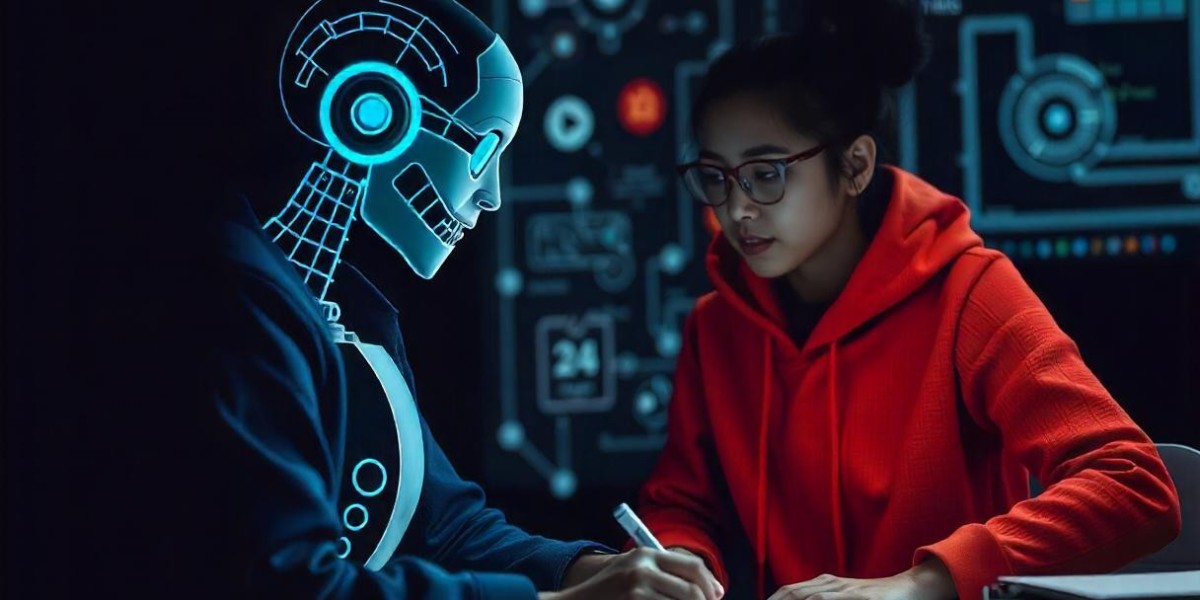Artificial Intelligence is changing many fields, and education is included. It helps with tasks like managing administration and creating online classrooms. AI greatly influences education in many ways. A key benefit of AI is that it can tailor learning to fit each student's needs. In today's world, where personalized experiences are important in all areas, education is also adapting. AI-driven personalized learning is essential in today's education, making sure every student gets the support and resources necessary for their success.
The Role of AI in Personalizing Learning Experiences
What is Personalized Learning?
Personalized learning is a way of teaching that adjusts to fit the specific needs, strengths, and interests of each student. Unlike traditional methods that treat all students the same, personalized learning focuses on the individual. This approach lets students learn at their own speed and in their own way. Important parts of personalized learning are flexible learning paths, tailored content, and immediate feedback, all designed to boost student involvement and success.
The Need for Personalized Learning in Today's Education
Traditional teaching methods often fail to meet the different needs of students. Classrooms have students with various skills, backgrounds, and ways of learning, so a one-size-fits-all method can overlook many. Personalized learning solves this problem by providing a more adaptable and customized approach. By concentrating on each student's strengths and weaknesses, personalized learning can greatly enhance student success, making education more effective and inclusive.
How AI Transforms Personalized Learning
AI-driven Data Analysis for Personalized Learning
AI personalized learning mainly by analyzing data. It gathers and examines large amounts of information about how students perform, their learning styles, and what they like. This method helps AI to design learning paths that fit each student's needs. For instance, if a student has difficulty with a specific topic, AI can recognize this and change the material or offer extra resources to assist the student in overcoming the issue.
A custom AI development company can create tailored solutions that help educational institutions harness AI-driven data analysis for a more personalized learning experience.
Adaptive Learning Systems
Adaptive learning systems are a strong use of AI in personalized education. These systems change lesson difficulty and content based on how well a student is doing.
Some of the top education apps are already leveraging adaptive learning systems, offering students more personalized and engaging content.
If a student is doing well, the system can provide harder material to keep them interested. If a student is having trouble, it can give easier explanations or more practice. This flexible approach makes sure that learning matches the student's abilities.
AI in Personalizing Learning Content
AI is important for personalizing educational materials. It looks at student data to suggest content that fits their needs and interests. This can be anything from articles and videos to interactive games and quizzes. By offering relevant content, AI boosts student engagement and makes learning more fun.
AI-powered Tutoring Systems
AI tutoring systems are gaining popularity because they give personalized help beyond the classroom. They can offer instant feedback, respond to questions, and assist students with difficult topics. For example, an AI tutor can notice when a student struggles with a math problem and provide detailed steps to clarify the solution. This kind of tailored support can greatly enhance a student's learning journey.
Benefits and Challenges of AI in Personalizing Learning
Improved Student Engagement and Motivation
Using AI for personalized learning can greatly increase student interest and motivation. When lessons are customized to match each student's interests and skills, they tend to be more engaged and eager to learn. This tailored method can change learning from something passive into an active and fun experience.
Enhanced Learning Outcomes
Research indicates that personalized learning improves academic results. By addressing each student's unique needs, AI can enhance their understanding of concepts and help them remember information for a longer time. This focused method not only boosts grades but also encourages a better grasp of the subject matter.
Efficiency in Learning Processes
AI makes learning easier by automating tasks such as grading, giving quick feedback, and creating personalized content. This helps teachers concentrate on important teaching roles, like mentoring and offering individual support. For students, it leads to quicker progress and better learning outcomes.
Challenges in Implementing AI for Personalized Learning
Data Privacy and Security Concerns
A major challenge in using AI for personalized learning is protecting data privacy and security. AI needs a lot of data to work well, which raises worries about how this data is gathered, kept, and used. Schools and educational institutions must put strong data protection measures in place to keep student information safe.
Accessibility and Equity Issues
AI can make education more equal, but there are worries about access and fairness. Not every student has the technology to use AI for personalized learning. If not done right, AI might make current inequalities worse. It's important to make sure all students can use AI tools, no matter their background, to achieve fair education.
The Cost of AI Implementation
Using AI in education can be expensive. Buying new software and training teachers can add up. Schools need to think about the advantages compared to the costs and look at AI as a long-term investment for lasting success.
Future of AI in Personalizing Learning Experiences
The Evolution of AI in Education
AI in education is always changing, with new improvements happening all the time. As AI gets smarter, it will likely be used more in personalized learning. Future changes might bring better adaptive learning systems, predictive analytics, and AI-created content, all designed to improve the learning experience.
AI and the Future Classroom
The future classroom will probably be greatly shaped by AI. With AI teaching assistants and customized learning plans, education could change dramatically. Classrooms will become more engaging, interactive, and suited to each student's needs because of AI.
Preparing Educators for AI-driven Personalization
With the rise of AI in education, it's important to get teachers ready for this change. They will need training on how to use AI tools and include them in their teaching. Moreover, teachers will be key in making sure AI is used in a responsible and effective way to improve student learning.
Conclusion
AI can change personalized learning, making education better, more interesting, and easier to access. As we progress, it's important for teachers, schools, and decision-makers to accept AI-based personalized learning and collaborate to tackle the challenges it brings. This way, we can help every student succeed in a learning space that fits their individual needs.









